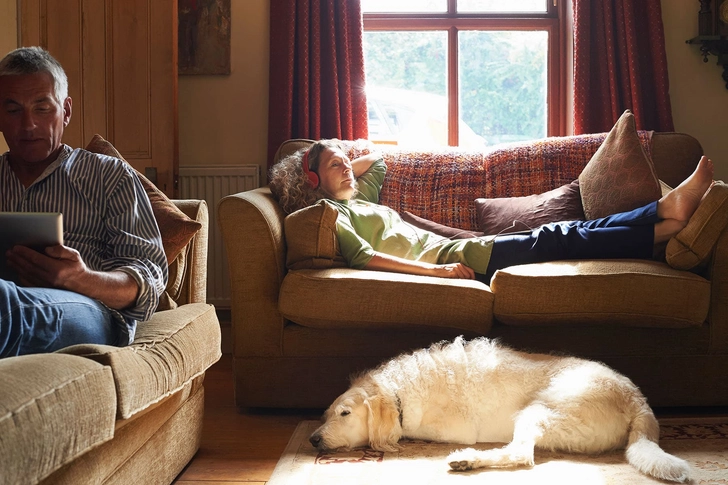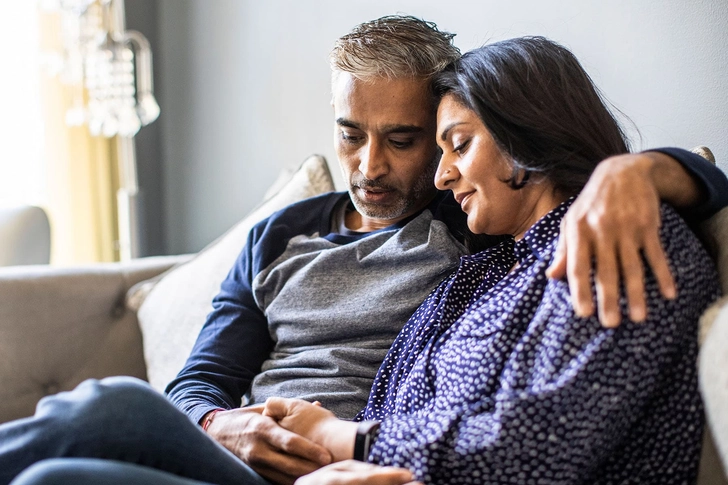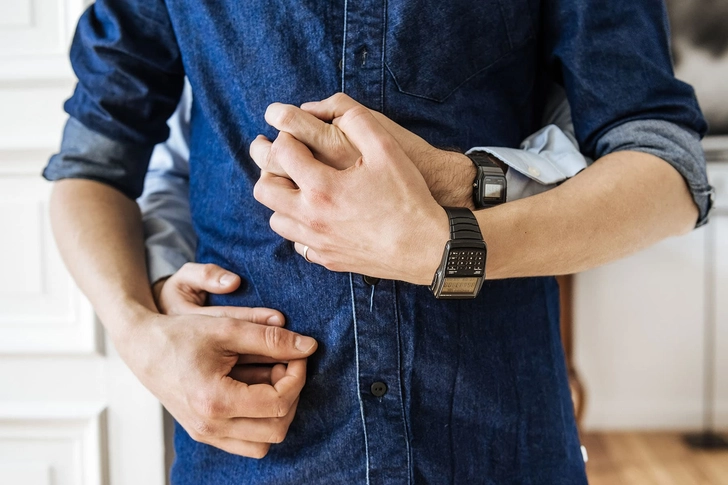- Overview
- Symptoms
- Causes & Risks
- Tests & Diagnosis
- Treatment
- Living With
- Complications
- Support & Resources
- Appointment Prep
- View Full Guide
10 Loving Things to Know if Your Partner Has Crohn's Disease


Love the One You’re With
If you’re the partner of someone who has a long-term condition like Crohn’s, you want to help as much as you can. How do you do it the right way? First, be present – be willing to see their ups and downs with the disease, and that will bring you closer. Strike the right balance – be there 100% for your partner, yet also respect their decisions about how to handle their illness. Finally, make sure you take care of yourself so you can be at your best for both of you. Here are 10 tips to guide you the right way.

Learn Everything You Can
The physical symptoms your partner may get include bouts of cramping, mouth sores, fever, and diarrhea. French researchers found that the fatigue associated with Crohn’s may even make it harder for your partner to process their emotions, which can lead to depression. These problems can also trigger fear and embarrassment. Your partner may worry that their condition is a burden for you, too. Read up on the disease so that you can offer your partner an informed point of view.

Get Real
Crohn's isn't contagious – you can’t catch it from your partner, but you both may share its impact. For example, your plans may be affected when your partner is in an active phase of Crohn's. A flare will probably mean they don’t feel like date night at your favorite restaurant, so be flexible. Try to put yourself in your partner’s shoes as much as you can. This doesn’t mean you have to forgo your needs completely, but be honest with yourself about what activities your partner will be up for when ill. Things will get easier when they are in remission.

Let Your Partner Lead
Crohn's is not a one-size-fits-all disease. What works for one person or couple may not work for others. Your partner has more experience with Crohn’s than you do because it’s happening directly to them. Let your partner set the pace and follow their preferences about how they want you to be involved in their process of handling it. If they have had Crohn’s for years, for example, they may not need you to go with them to doctors’ appointments. Or if newly diagnosed, they may want you there to listen and take notes. Find out what your partner wants you to do when they are really feeling their worst: Stay nearby to offer help, or give them space? The more you understand about what works best for your partner, the easier it will be for you to be useful in their routine.

Ask, Don’t Assume
Crohn's can be tough to understand if you don't have it, and you may have a lot of questions. Open communication will keep your bond strong. Ask your partner direct questions in a loving way when they aren’t sick, so you know how to help when they are. Some examples: What do you need during a flare-up? Do you like distraction if you’re resting during a flare-up, like a favorite movie? Do you like to be alone when you feel sick? What are some things you absolutely don't want me to do when you’re ill?

Be Their Rock
It may take a long time – and lots of trial and error, and doctors’ appointments – before your partner understands how Crohn's affects their body. You can help them weather the unexpected in their health journey by being steady, calm, and supportive. Expect them to be sick of being sick, and to feel frustrated with being poked and prodded at medical appointments. Stay consistent. Let them know you are with them and not going anywhere, and that they don’t have to do this alone.

Go With the Flow
Crohn’s flares can be dramatic sometimes. Your partner may need you to drive faster toward the nearest bathroom, and then they spend what seems like a really long time in it. They may get suddenly angry or upset and ask you to listen while they vent without trying to fix it. Other times, flares may take so much out of your partner they get too wiped out to talk. Know that their experience may be unpredictable. If your partner wants, you can chart a pattern of flares from week to week or month to month, so any consistent symptoms or severity can be anticipated, and make things easier.

Go Easy When It Comes to Sex
A study by researchers at Rush University Medical Center found that up to 58% of Crohn’s patients feel some impairment when it comes to their sex lives. Intimacy may be no problem when your partner’s Crohn’s is under control. Yet it's hard to feel sexy when you're concerned about bowel control. If your partner is dealing with things like the side effects of medication or a negative body image, get creative. Remind your loved one often that they're attractive to you. Ask what they'd like to do so you can feel close to each other. Keep things light, fun, and low-pressure.

Be Honest
No eggshells necessary. Being sensitive is important, but it's OK to speak up about your own needs. Crohn's is one part of your relationship, but not the only or most important part. You need to live your life fully, too, and it’s OK to expect the same support from your partner as you are giving. Don’t hold back your feelings – put it all out there. State what you want out of your relationship freely and clearly. Your partner should still be fully there for you and willing to meet your needs – that has nothing to do with Crohn’s, it has to do with respect.

Be Good to Yourself
Remember, you don't have Crohn's, your partner does. Don't lose yourself in this disease. You need to live your life fully, too, and do things that make you feel great. Self-care is a big part of that, so read that book or indulge in that bubble bath. Also, it’s OK to do things even when your partner won't or can't. Go to that party. Book a weekend trip. If you have the opportunity to have fun, take it, and explain to your partner that this is what you need to replenish yourself.

Focus on Joy
When your partner is going through a hard stage with Crohn’s, it can be hard to imagine they’ll ever feel better. Tell your partner you feel optimistic and confident that Crohn's won't always control their life. Help your partner think positive and look forward to wonderful things in the future you plan together. Concentrate on happiness – it’s the best medicine.
IMAGES PROVIDED BY:
- Sam Edwards/Getty Images
- Oscar Wong/Getty Images
- Richard Drury/Getty Images
- Tom Werner/Getty Images
- MoMo Productions/Getty Images
- Hinterhaus Productions/Getty Images
- IrKiev/Getty Images
- Meng Yiren/Getty Images
- Carlina Teteris/Getty Images
- Westend61/Getty Images
- The Good Brigade/Getty Images
SOURCES:
1. Mayo Clinic: “Crohn’s Disease.”
2. Crohn’s and Colitis Canada: “Mouth Sores.”
3. Harvard Health Publishing: “Living with Crohn’s Disease: Recognizing and Managing Flares.”
4. Human Health Project: “The Do’s and Don’ts: How to Support a Loved One Living with Crohn’s Disease.”
5. Crohn’s and Colitis Young Adults Network: “How to Communicate Relationship Boundaries While Living With IBD.”
6. Rouen Normandy University: “Toward Further Understanding Of Crohn’s Disease Related Fatigue: The Role of Depression and Emotional Processing.”
7. U.S. National Library of Medicine, National Institutes of Health: “How to Predict Clinical Relapse in Inflammatory Bowel Disease Patients.”
8. Rush University Medical Center: “Getting Personal: A Review of Sexual Functioning, Body Image, and Their Impact on Quality of Life in IBD Patients.”
9. Crohn's and Colitis Canada: "Getting Closer…Intimacy and Relationships with Crohn's and Colitis."
10. Crohn’s and Colitis Foundation: “Maintaining Positive Body Image.”
11. U.S. National Library of Medicine, National Institutes of Health: "Patient Perspectives on the Impact of Crohn's Disease.”
12. Society of Intestinal Research: "Sonia B. Glover: My Life With Crohn's."
13. Angela Renee, Crohn’s patient, California.
14. Crusade for Crohn's & Colitis: "So you're dating someone with Crohn's Disease?”
15. Crohn's and Colitis Canada: "Getting Closer…Intimacy and Relationships with Crohn's and Colitis."